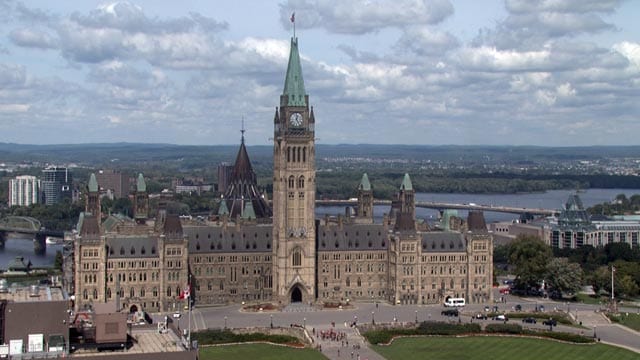
Parliament Hill
OTTAWA – Thousands of Indigenous families living on-reserve will miss out on a boost to the federal Liberals’ signature child benefit that government MPs plan to tout at dozens of events Thursday.
Almost every family in the country receives the monthly benefit, but take-up rates for families on-reserve have consistently lagged behind the wider population – largely chalked up to lower tax filing rates among Indigenous families.
Tax returns are the basis for calculating how much a family receives under the Canada Child Benefit.
The government now estimates one in every five Indigenous families on-reserve who should qualify are not receiving the benefit, an improvement from two years ago when about half of families on-reserve missed out on the means-tested benefit.
Social Development Minister Jean-Yves Duclos raised the issue as a key focus for the government, saying there are still too many kids missing out for a population that tends to have larger families, and is more likely to experience poverty.
“These families need and deserve the (child benefit) even more than the average Canadian family,” he said in an interview this week.
“We’ve got to improve on delivery of the (child benefit) and I would say this is the number one priority in the months to come.”
The Liberals will put on a national show of support for the benefit Thursday, sending Duclos to four different spots in Ontario and fanning out five other cabinet ministers for public events.
This morning, Prime Minister Justin Trudeau is visiting an Ontario summer camp for children from low-income families. All told, there will be some 150 Liberal MPs talking about the benefit, whose value will increase with inflation.
Pegging the value of the benefit to inflation wasn’t supposed to happen until 2020 under the Liberals’ original plan, but the government changed its mind after an outcry from anti-poverty groups and a critical report from Parliament’s spending watchdog.
Indexing the benefit to inflation will increase program spending to about $25.1 billion by 2022, from the $23.7 billion budgeted for this fiscal year.
Duclos rejected the idea that the Liberals were trying to buy votes heading into next year’s federal election, an accusation the previous Conservative government faced when it increased the value of its universal child benefit weeks ahead of the start of the 2015 campaign.
He said the government had long ago signalled its decision to increase the value of the benefit with inflation starting this month, more than one year before an election, arguing it was good policy.
“The policy proved to be so effective and popular that we ended up understanding that indexing it in 2018 would be both better from a policy perspective and better from an impact perspective.”









